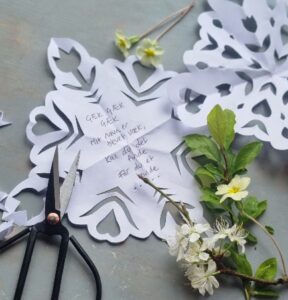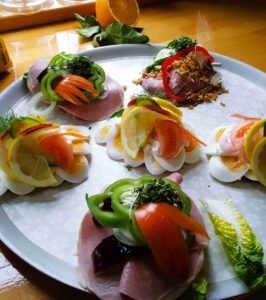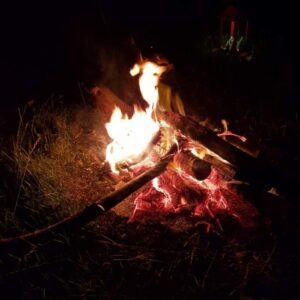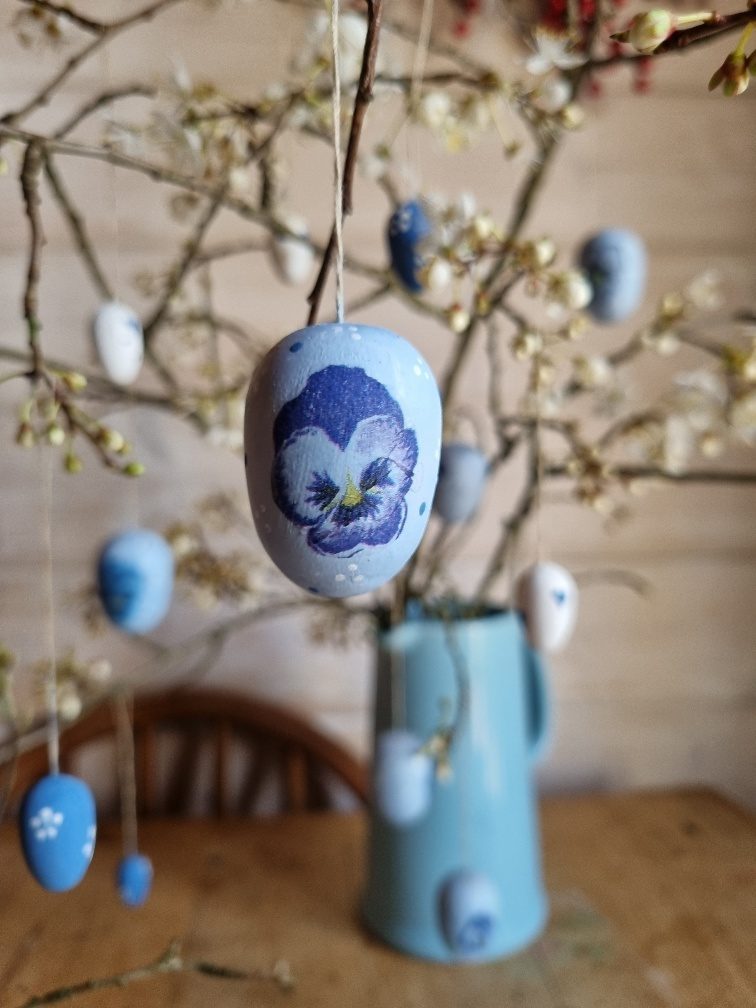While Easter is obviously a religious festival in many places, Scandinavia throws a springtime celebration with a focus on fun, family, and embracing the new season. Here’s a peek into some unique and unusual Danish and wider Scandinavian Easter traditions that might inspire your own festivities!
Gækkebreve: The art of the anonymous Easter letter
In Denmark, children take part in a lovely tradition called Gækkebreve. These are intricately cut paper letters (rather like a paper snowflake) with a riddle or rhyme on the back, often accompanied with a snowdrop or little flower. The riddle often says “gæk gæk gæk mit navn det står med prikker, pas på det ikke stikker” (which translates into “my name is written with dots, be careful it doesn’t prick you”).The sender disguises their identity by signing with dots representing the number of letters in their name; the recipient must guess who sent the letter; if they fail, they owe the sender a chocolate egg!
Påskeæg: rolling in Springtime fun
Danes also enjoy an afternoon taking part in “trille påskeæg,” which translates to “rolling Easter eggs.” Decorated hard-boiled eggs are rolled down a gentle slope, with the winner being the egg that travels the farthest. Which is much more refined than our family tradition, where I have to throw raw eggs at my nephew and he has to hit them with a spade. And of course, Easter eggs hunts are a feature, as the Easter bunny manages to get everywhere, even when there is a bus replacement service.
Påskefrokost: A feast fit for a party
Food is always a central part of any Scandinavian celebration, and Easter is no exception. The star of the show is Påskefrokost, a grand Easter lunch enjoyed with family and friends. Think of it as a smorgasbord of Nordic yumminess, with various herring dishes, sliced meats, cheeses, boiled eggs with cress, and sometimes even lamb. The meal is accompanied by snaps (strong aquavit) and a special Easter beer (Påskebryg) that’s stronger than your average day to day lager.
Finland: Witches, rye bread, and bonfires
Virvonpa päivä: A day for witches
Palm Sunday in Finland transforms into “Virvonpa päivä” (Willow Branch Day). Young girls dress up as colorful witches and go door-to-door, chanting a blessing and waving decorated willow branches. Homeowners reward them with sweets or small coins in exchange for the good luck they bring.
Mämmi: An Easter dessert that divides opinions like Marmite!
No Finnish Easter table is complete without Mämmi, a traditional dessert with a strong following (and also some people who think it less than appetising!). Made from rye flour, malt, and molasses, Mämmi has a dark, thick consistency and tastes of, well, squishy wet bread.
Easter bonfires
On Easter Saturday night, Finns light bonfires to symbolize driving away the remaining winter darkness and welcoming the light of spring. It’s a community event where people gather around the flames, sharing stories and enjoying the warmth.
Iceland: Chocolate!
While other Scandinavian countries might have more diverse Easter traditions, Iceland keeps it simple and sweet (literally!). Easter in Iceland is all about chocolate; from the weeks leading up to Easter, shops overflow with an incredible variety of chocolate eggs in all shapes and sizes. Icelanders take their chocolate consumption seriously, with estimates suggesting they devour an average of 3.5 kg (7.7 lbs) of chocolate per person during Easter!
Sweden: Påskris
Easter trees made from colourful feathered twigs are a common sight, symbolizing new life and spring’s arrival. Children also dress up as little witches complete with headscarves and painted-on rosy cheeks and freckles on Maundy Thursday, a tradition believed to have originated from driving away evil spirits before Easter.
Norway: A crime spree!
Over in Norway, the Easter weekend starts on Maundy Thursday, so many families pack up for the weekend and head off to their hytter (cabins) for the weekend. Skiing is a very popular pastime, fueled by Kvikk Lunsj chocolate bars (kind of like a four finger Kit Kat), while reading crime novels is also traditional, so much so that Easter crime has it’s own name (paskekrim). Murderous thrillers will be everywhere from TV to newspapers; the origin of this tradition is unclear, but one theory points to a specific book published in February 1923; “Bergen to Stavanger” by Nordahl Grieg and Nils Lie. This crime novel was heavily promoted by its publisher, Gyldendal, with a major advertising campaign timed for Easter release. The book’s success and the publisher’s marketing push might have sparked a trend for crime fiction releases around Easter.






